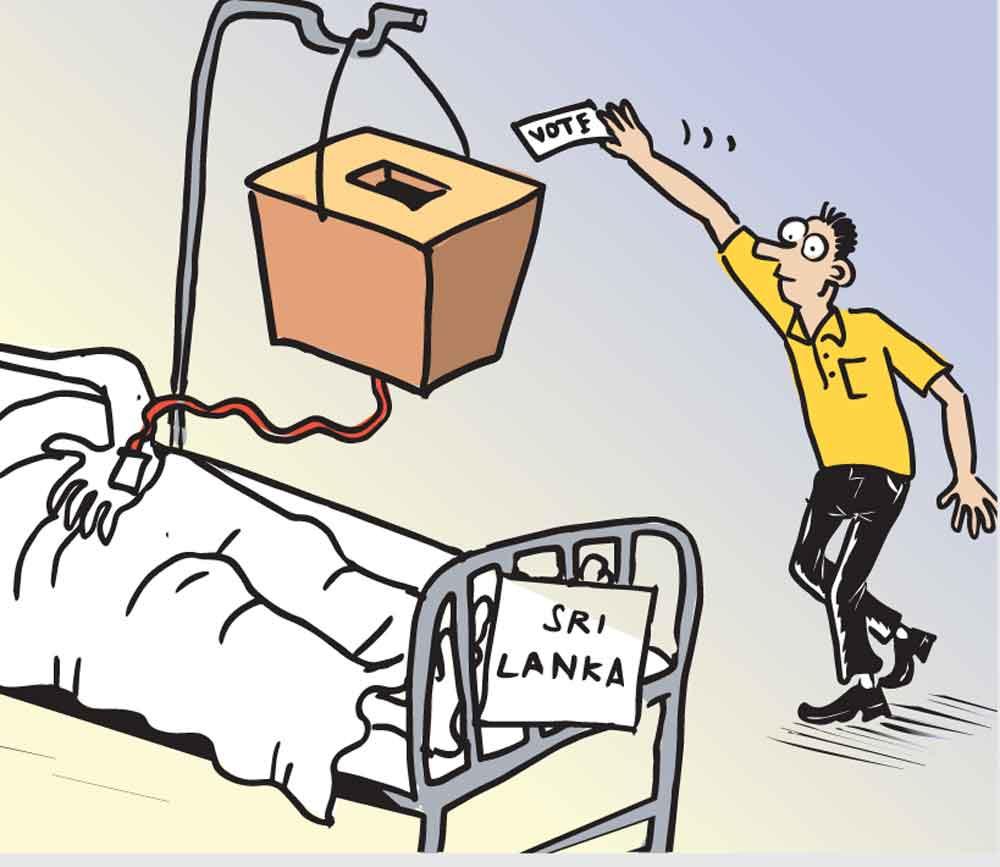Reply To:
Name - Reply Comment

Sri Lanka has witnessed a number of Parliamentary Elections ever since she gained independence. But in each one of them, voters saw the same faces shuffling between rival political parties in their quest to retain power. On the contrary, today’s General Election is special for many reasons. Following the results of the recent Presidential Election, many senior politicians stepped down from the elections race and claimed to be taking a ‘temporary break’ from politics. This in turn allowed many fresh faces to enter the fray and contest for a seat in Parliament; while pushing many of the known political figures to the national lists.
Over the past few days, many of these young educated contestants, who have their expertise in various professions, campaigned to promote their ideologies and aspirations among the people. Today’s Parliamentary Election will witness over 17 million voters exercising their right to vote.
The universal franchise was conferred on Sri Lanka in 1931 and it is through a universal franchise that people get the authority to select their representatives by vote, and accordingly to change the government which they dislike and elect representatives and the government of their choice. The universal franchise therefore confers sovereignty in the people. This has been further reflected in Article 3 of the 1978 Constitution which states that ‘sovereignty is in the people and is inalienable.’
Despite eligible Sri Lankans being granted this privilege, past political events have discouraged voters from exercising their right to vote and elect suitable candidates to Parliament. At the previous Presidential Elections, around 200,000 first time voters exercised their right to vote. They aspired to see a better political culture, a political system that wouldn’t entertain corruption, nepotism and bribery, a system that would provide a level playing field for all citizens irrespective of their socioeconomic status, a country that embraces its rich cultural and ethnic diversity among others. But it is too early for anybody to comment on the outcome as the caretaker government needs to be backed by a Parliament with a simple majority to pass the necessary legislature.
Another surprising statistic is that 21% of voters didn’t exercise their right to vote at the previous Presidential Elections. This was due to various reasons including voters being in a dilemma about which candidate to vote for. Some voters were in doubt about electing a new candidate as the leader of the country. Others were simply lost for options despite 38 candidates contesting for the hot seat. Today, voters can make a choice from over 8000 candidates contesting for a seat in Parliament.
However, this time around, there seems to be a interesting mix of candidates contesting for a seat in Parliament and if voters vote wisely, they would be able to see a Parliament with a rich diversity. This diversity is an important element for a country like Sri Lanka because we have individuals and communities from diverse ethnic, social, cultural and religious identities.
By representing all or a majority of these groups in the most respected institution in the country, it would provide these groups with a sense of belonging to their homeland.
Sri Lanka had to face multiple crises at the hands of politicians who misused the powers vested onto them by the people. The traditional political culture was mostly based on false promises, where politicians could easily hoodwink voters to believe all these fairytales during the election.
There was a time when politicians were treated as celebrities and they (politicians) in turn forgot that they were elected to serve the people who voted them to power. If people are demanding a shift in this archaic political culture, then today is their turn to mark their vote wisely and usher in a new era of governance.